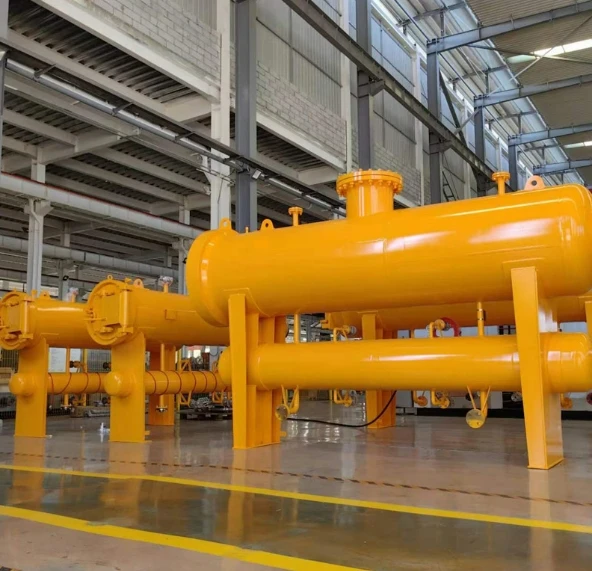
Nov . 08, 2024 00:35
Back to list
Creating Effective Filters for Data Management and Analysis Techniques
Understanding Filter Separators A Key Component in Industrial Applications
In the realm of industrial applications, the effective separation of different materials is critical for efficiency and cost-effectiveness. One of the essential devices used in this process is the filter separator. This article aims to provide a comprehensive overview of filter separators, their functionality, and their applications across various industries.
What is a Filter Separator?
A filter separator is a device designed to remove impurities, liquids, or particulates from a gas stream. It combines the functions of a filter and a separator, allowing for a two-in-one solution to ensure cleaner gas output. The primary components of a filter separator include a filtration element, a separating chamber, and a collection tank. The filtration element captures larger particles, while the separating chamber interferes with smaller droplets or aerosols, allowing them to coalesce and fall into the collection tank.
How Does a Filter Separator Work?
The operation of a filter separator involves several key steps
1. Intake The contaminated gas mixture enters the separator through an inlet. 2. Filtration As the gas passes through the filtration element, larger solid particles are trapped, preventing them from continuing through the system.
3. Separation The remaining gas, now relatively free of solids, enters the separating chamber. Here, cyclonic action or gravity assists in removing liquid droplets from the gas stream. As the gas flows, it experiences changes in velocity and direction, promoting the coalescence of smaller droplets, which then unite to form larger droplets.
4. Collection The larger droplets coalesce and are directed into the collection tank at the bottom of the separator, from which they can be periodically drained or removed.
5. Outflow The cleaned gas exits the separator through an outlet, ready for further processing or discharge into the atmosphere.
Applications of Filter Separators
Filter separators find extensive applications across various industries, including
filter separator

- Oil and Gas Industry In the extraction and production of oil and gas, filter separators play a pivotal role in ensuring that the gas is free from condensates and other impurities. They protect downstream equipment from damage, thereby minimizing maintenance costs.
- Power Generation In combined heat and power systems, filter separators help maintain the efficiency of gas turbines by preventing impurities from causing wear and tear on the turbine components.
- Chemical Processing In chemical plants, filter separators facilitate the production of high-purity products by ensuring that gas streams are free from contamination. This is particularly crucial in the production of specialty chemicals and pharmaceuticals.
- Food and Beverage Industry Filter separators are used to ensure that air or gas used in conveying food products is clean and free from impurities, which could compromise product safety and quality.
Benefits of Using Filter Separators
Employing filter separators in industrial processes offers several notable benefits
1. Efficiency By ensuring that only clean gas is processed further, filter separators enhance operational efficiency, reducing the risk of equipment fouling and increasing the lifespan of machinery.
2. Cost Savings Through effective filtration and separation, companies can save significantly on maintenance and operational costs, thus improving the overall bottom line.
3. Environmental Compliance Filter separators can help industries meet stringent environmental regulations by minimizing emissions and ensuring that processes discharge cleaner gas.
4. Product Quality In sectors like food and pharmaceuticals, maintaining the integrity of product quality is critical. Filter separators contribute to consistent product standards by preventing contamination.
Conclusion
In conclusion, filter separators are indispensable in modern industrial processes, providing a reliable means of ensuring the purity of gas streams. With their ability to remove impurities effectively and at low operational costs, they enhance efficiency and safeguard equipment across various applications. As industries continually evolve and seek sustainable practices, filter separators will undoubtedly play a significant role in future advancements. Their importance in maintaining product quality and compliance with environmental standards makes them a vital component in the quest for operational excellence.
Latest news
-
Safety Valve Spring-Loaded Design Overpressure ProtectionNewsJul.25,2025
-
Precision Voltage Regulator AC5 Accuracy Grade PerformanceNewsJul.25,2025
-
Natural Gas Pressure Regulating Skid Industrial Pipeline ApplicationsNewsJul.25,2025
-
Natural Gas Filter Stainless Steel Mesh Element DesignNewsJul.25,2025
-
Gas Pressure Regulator Valve Direct-Acting Spring-Loaded DesignNewsJul.25,2025
-
Decompression Equipment Multi-Stage Heat Exchange System DesignNewsJul.25,2025

